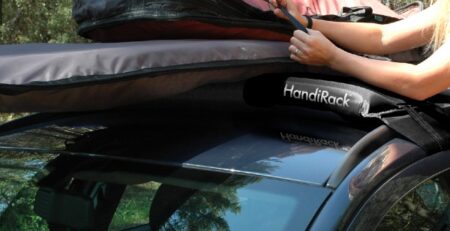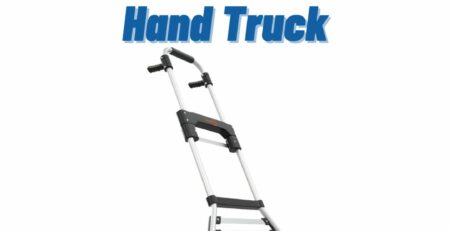HandiWorld’s Guide to Dealing with Emergencies on the Roads
As much as we don’t like to think about it, if you’re heading out on a long road trip, you need to be prepared for every eventuality, including emergencies on the road and as much as we all like to think we’d know what to do if we were faced with a problem, when it comes to it, you might not.
We’ve put together a go-to guide to dealing with any emergency on the road, so no matter what problem occurs on your journey, you know how to handle it!
- Always Turn Your Hazard Lights On
The number one thing to know when it comes to dealing with emergencies on the road is to switch on your hazard lights if your vehicle has come to a stop.
The only time this doesn’t apply is if you’re injured but if you’ve broken down on the hard shoulder, you’ve broken down and are blocking traffic, you’ve had an accident but aren’t injured or you’ve stopped to assist with someone else’s emergency, you need to turn your hazard lights on to let other drivers know that your vehicle is stopped and that something has happened they need to be aware of.
- Always Carry Your Car Warning Triangle
It’s not illegal to travel without a warning triangle in the UK but as we mentioned in our Car Safety Tips blog post, it’s advisable to have a warning triangle in your boot at all times, whether you’re heading on a long or short drive.
Your warning triangle should be placed at least 45 metres to the rear of your car but never use a warning triangle on a motorway, even on the hard shoulder as this could obstruct emergency vehicles from approaching you safely. Warning triangles can be used on all other roads, including dual carriageways.
- Dealing with Losing Control and Skidding
Losing control of your vehicle most commonly happens in snow but can happen in perfectly dry weather if there is oil or other slippery substances on the road, so you need to know how to deal with this situation.
If you feel your car beginning to skid out of your control, Churchill recommend that for a front wheel skid, you steer into the spin but for a rear wheel skid, you need to carefully steer into it but either way, you need to take your feet off all pedals to allow engine braking to take over and most importantly, stay calm and don’t panic.
Once your car has stopped skidding, don’t try and drive off immediately as you’re likely to be shaken up and this could lead to further problems on the roads, so if you and your car are unharmed, move your car to a safe place out of the way of traffic, turn the engine off and take a moment to calm down before trying to drive on.
- A Basic Breakdown
There’s a multitude of reasons why cars break down while you’re driving and your priority when this happens is not to try and figure out what’s happening but to get to a safe place and call the professionals.
If you get a warning light come up on your car that signals a problem, pull over immediately; being reactive to warning lights can help avoid breaking down and allows you to get to a safe place and get help before the problem becomes a bigger issue. Once you’re out of the way of traffic, if you have roadside assistance for your car, call your provider and follow their advice from there. If you don’t, you’ll need to ring a local mechanic and ask if they can come and look at the problem and recommend a solution.
If your car breaks down when you’re driving and you can’t move to the hard shoulder or out of the way of traffic, you’ll have to put your hazard lights on and call a recovery company to come and assist you. You’ll also need to call the police to let them know your vehicle is obstructing traffic.
If you break down on a motorway and aren’t on the hard shoulder, stay in the car with your seatbelt on and switch hazard lights on. Do not try and get out and stand on the road as it isn’t safe to do so.
- What to Do if You Have an Accident
No one likes to think about the possibility of having a car accident but you have to know what do if the worst happens.
The AA has a great guide to follow which outlines step by step what to do if you have an accident, be it big or small and it highlights the following points:
- Stop the car and turn off the engine as soon as possible
- Switch your hazard lights on immediately
- Check yourself and passengers in your vehicle for injuries, if you’re all ok and everyone in the other vehicle is too, get out, swap details and claim through insurance.
- If anyone is injured or the road is blocked, call the emergency services you require
- Always stay calm and never apologise or get into an argument with the other driver
If you don’t need to call the police at the time of the accident, The AA suggest that you call the police and report an accident within 24 hours if the other driver leaves the scene without stopping, you believe the other driver was under the influence of drink or drugs or has no insurance or if you believe the accident was caused deliberately.
- How to Deal with a Car Fire
Car fires aren’t the most common kind of road emergency but they happen, so if you’re driving and your car sets alight from the bonnet, the first step is to turn the engine off and get yourself and everyone else out the vehicle immediately.
Do not open the bonnet or go near the area of the fire; if you have a dry powder or foam extinguisher in your car and can get it safely, aim that through the radiator grille to try and put the fire out but if you don’t or it isn’t safe to do so, get as far away as possible and call the fire service immediately.
Once the fire is put out, you’ll need to ring your roadside recovery as your car won’t be fit for driving without further assessment and may not be safe to drive at all, so do not attempt to continue driving once the fire has been put out.
Emergencies do occur on the roads but the best way to deal with them is to stay calm and think logically, panicking and reacting wrong can worsen the situation, causing a bigger problem.
Have you got any top tips for dealing with emergencies on the roads? Share your tips with us on Twitter or Facebook!












